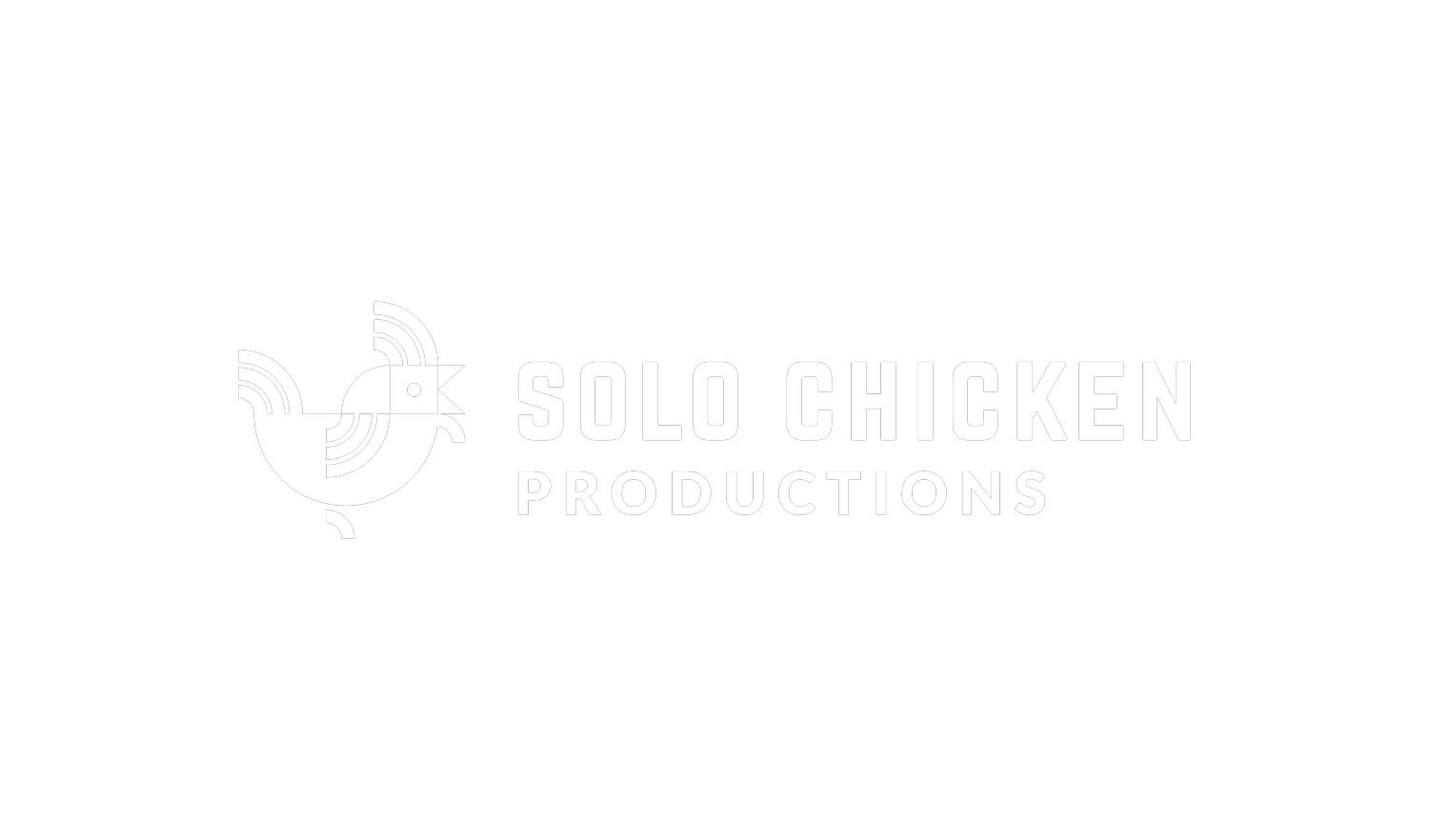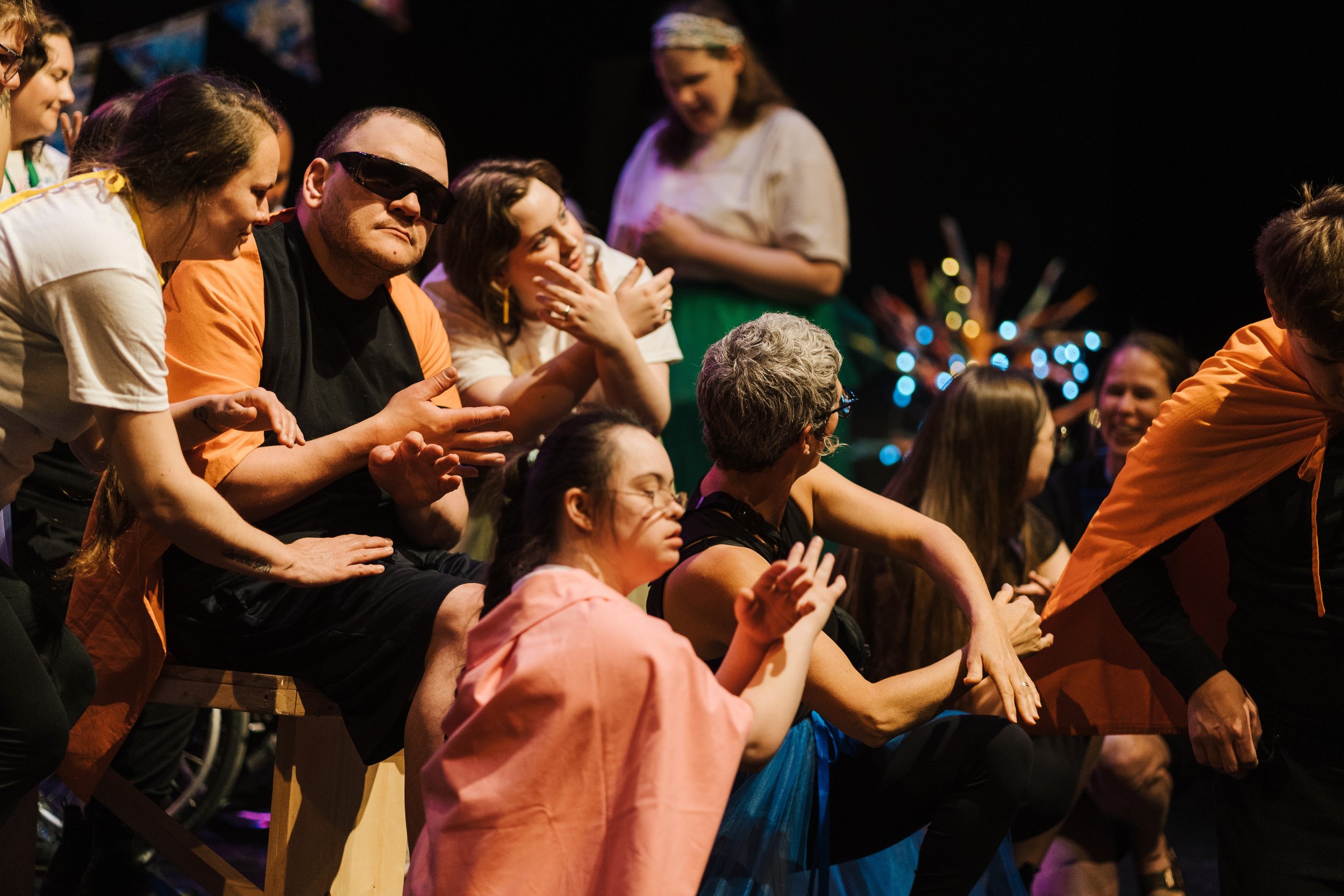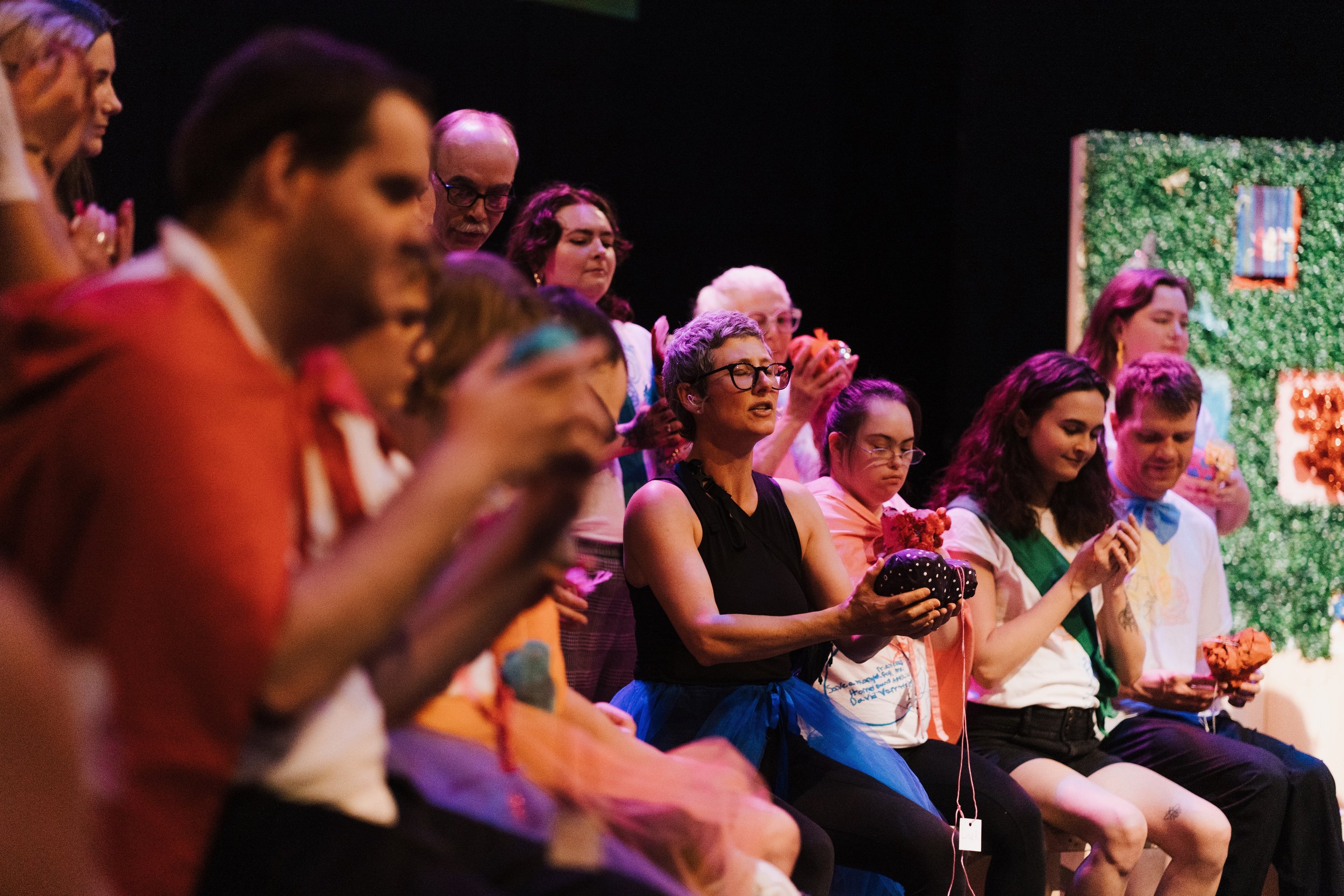
EQUITY DIVERSITY & INCLUSION
Our Statement of Promises
a. Solo Chicken Productions promises to endeavour to create an environment in which artists, staff and volunteers alike can engage in the challenges and delights of creating great work in a safe and respectful workplace that is free of any form of harassment. There is simply no tolerance for any type of harassment at Solo Chicken, and this policy applies to all employees and subcontractors employed by Solo Chicken Productions as well as volunteers working on various productions and projects.
b. Solo Chicken Productions is committed to creating and maintaining respect for human rights, anti-oppression, dignity, diversity, inclusion, and equality.
c. Solo Chicken Productions shall establish a code of practice to ensure, so far as is reasonably practicable, the health and safety of any and all Solo Chicken employees, subcontractors and volunteers working with the company.
Land Acknowledgement
The land where Solo Chicken Productions works and plays is the traditional territory of the Wolastoqiyik / Wəlastəkewiyik whose ancestors along with the Mi’Kmaq and Peskotomuhkati / Passamaquoddy nations signed Peace and Friendship Treaties with the British Crown in the 1700s. We are grateful to work and play along the banks of the Wolastoq which has been a bountiful home for Indigenous peoples of the Wabanaki Confederacy since time immemorial. Although we occupy space on this land, it is important to know that it is not and was never ours as settlers. The Peace and Friendship Treaties never dealt with the surrender of land, water, or resources; instead focusing on the rules of an ongoing relationship and communication between nations.
Yet the continued acts of government in the oppression of Indigenous peoples have betrayed these treaties—the resources and land are no longer under the control of the indigenous peoples of the Wabanaki Confederacy. The control of the land and water by the federal and provincial governments has created a dire environmental crisis on the Wolastoq watershed system and has created barriers for Wolastoqiyik, Mi’Kmaq, and Peskotomuhkati peoples to access their traditional territory—a part of a larger problem within the nation of Canada and internationally.
With this knowledge in mind, and as a small stone on the path to reconciliation, Solo Chicken Productions, would like to share some resources with our friends and colleagues that are intended to foster understanding, compassion, and action. Learn more about the history, culture and peoples of the Wabanaki Confederacy and the challenges we face as a nation in reconciling our past and moving forward in ally-ship.
Educational Resources
https://bit.ly/3aYELN7 Resources provided by the Wolastoqey Nation’s website
https://bit.ly/3MYjYqg The National Centre for Truth and Reconciliation, where you can find the 94 Calls to Action, among other educational resources
https://bit.ly/3MW0Wkr An initiative by CBC News to track the progress on the adoption of the 94 Calls to Action by the National Centre for Truth and Reconciliation to gain a better understanding of the current status of each individual call to action
https://bit.ly/3OicEHk The website for the National Inquiry into Missing and Murdered Indigenous Women and Girls
https://bit.ly/3xZ0HRz An amazing conversation/panel led by the NAC Indigenous Theatre on the topic of land acknowledgements
https://bit.ly/3OmTGiS A short CBC documentary regarding the current state of the Wolastoqey language and current revitalization attempts
https://bit.ly/3N5UMys David Perley discussing the need for a clean Wolastoq, which has been polluted by settler communities and technologies
https://bit.ly/3MXBKKk Dives into the specific technologies and actions which have led to a polluted Wolastoq
Resources for Change
Here is a collection of resources that we have engaged with as we work towards creating a more equitable artistic landscape.
We completed our EDI TRAINING which helps you to understand what unconscious bias is and how to integrate methods for mitigating the influence of unconscious bias.
We did an amazing online course with Nicole Brewer called Anti-Racist Theatre. Thanks to our board member Wei Qing Tan for bringing this resource to our attention. We highly recommend.
Are you working to make your company more inclusive? We love LiveWorkPlay, whose ‘helps the community welcome and include people with intellectual disabilities, autistic persons, and individuals with a dual diagnosis to live, work, and play as valued citizens.’
Becoming a better ally! We are RESEARCHING and exploring the words and work of our IBPOC colleagues. So many incredible folks have contributed to building an incredible web of resources that can help non-IBPOC folks become better allies. You don’t need to ask, because the words and work are all out there. Do the work yourself! Below are some of our favourites:
Canadian Theatre Research Conference - An amazing collection of articles and resources. Jump in.
ON BEING - A website that is all about ‘Pursuing deep thinking and moral imagination, social courage and joy, to renew inner life, outer life, and life together.’
TANISHA TAITT’S Talk on Culturally Integrated Scene Study - This brilliant talk really got us thinking and resulted in a massive Amazon Book bill. Tanisha Taitt explores why it is critical for non-IBPOC students to embody characters of colour and to ‘experience excellence from people of colour’. It was a profound talk and will make you rethink how you approach your teaching practice.
What Does Anti-Racist Theatre Look Like? - A great conversation with Nicole Brewer, a leader and educator in the field of anti-racist theatre.
Culturally Competent and Trauma-Informed Teaching in the Age of MAGA and Brexit - An amazing panel with Kaja Dunn, Sylvan Brown, and Stephen Buescher, that looks at how theatre education should adapt to better-serve IBPOC theatre artists-in-training
Intimacy Choreography and Cultural Change: An Interview with Leaders in the Field - A conversation between leaders in the field of Theatrical Intimacy Coordination and Training, with specific conversations on its intersections with race
A list of culturally diverse plays to increase your knowledge of plays written by a diverse selection of Canadian playwrights.
From Awareness to Action: Facilitating Change in the American Theatre - An in-depth look at the process of facilitating anti-racist theatre
Decolonizing Creation Processes by Reclaiming Narratives/Reclamando Nuestras Narrativas El Giro Decolonial en el Proceso Creativo - A conversation between Mary Kathryn Nagle and Robert Goodwin, discussing the decolonization of theatre and what that means to each of them.




